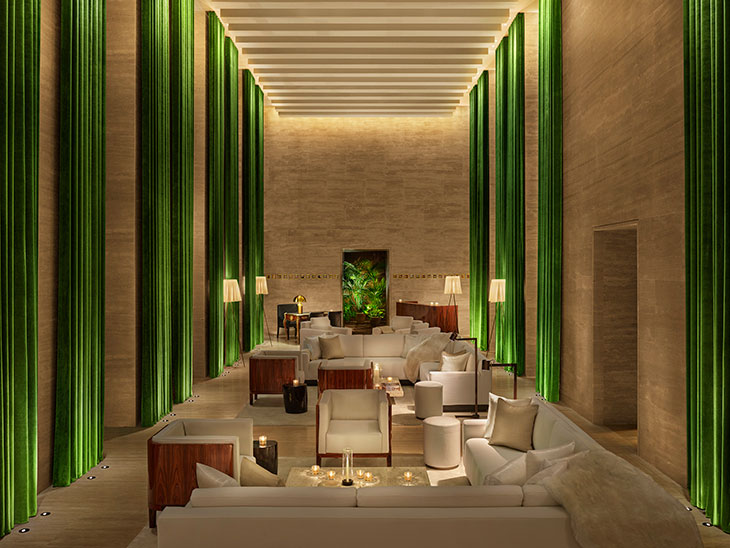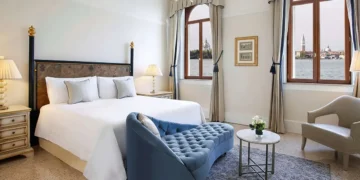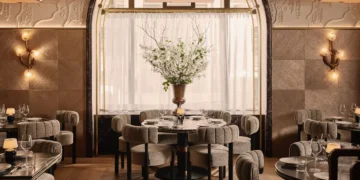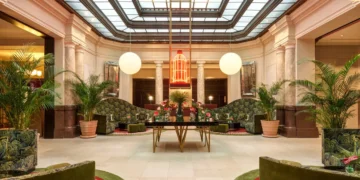
From the sun-drenched coasts of Sicily to the mist-covered hills of Tuscany, Italy’s landscape is dotted with accommodations that transform a simple vacation into an unforgettable journey. The country’s hospitality scene masterfully blends historical preservation with modern luxury, creating spaces where travelers can immerse themselves in Italy’s rich cultural tapestry while enjoying world-class amenities.
Northern Treasures: Lakes and Mountains
In Italy’s breathtaking north, Lake Como remains the crown jewel of luxury accommodations. While celebrities flock to the well-known Grand Hotel Tremezzo with its floating pool and art nouveau elegance, discerning travelers seeking tranquility often prefer the intimate Villa Lario. This renovated 19th-century palazzo offers just six suites, each with panoramic lake views and private terraces. The minimalist design accentuates the natural beauty outside, while attentive staff create customized experiences for each guest.
Further west in the Italian Alps, Forestis stands as a testament to sustainable luxury. Perched at 1,800 meters above sea level in South Tyrol, this former sanatorium has been transformed into a wellness retreat where floor-to-ceiling windows frame the dramatic Dolomites. The property’s commitment to locality extends beyond its pine-wood architecture to its cuisine and spa treatments, which incorporate mountain herbs and minerals from the surrounding forests.
Venetian Sophistication On A Private Island
Set apart from the bustle of Venice yet just minutes from its iconic canals, San Clemente Palace Kempinski offers a rare sense of calm that feels both indulgent and secluded. Surrounded by manicured gardens and shimmering lagoon views, the former monastery invites guests into a setting where history and comfort coexist. Vaulted ceilings, hand-laid terrazzo floors, and preserved frescoes serve as reminders of the island’s past, while spacious suites and silk-lined walls introduce contemporary refinement.
Beyond the rooms, amenities include a heated outdoor pool, tennis courts, and The Merchant of Venice spa, where treatments are inspired by the city’s historic trade routes. The hotel’s restaurant menus focus on elevated Venetian cuisine using seasonal ingredients, with terrace dining overlooking the water. A private boat service to Piazza San Marco ensures easy access to the city, making San Clemente feel like a tranquil base from which to explore – or retreat.

Tuscan Retreats: Countryside Elegance
Tuscany’s hotel landscape extends far beyond predictable villa conversions. At Monteverdi, a restored medieval village in Val d’Orcia, guests stay in individual houses scattered throughout the hamlet. This innovative approach to hospitality allows travelers to experience authentic village life while enjoying five-star amenities, from the panoramic infinity pool to the Michelin-worthy restaurant celebrating hyperlocal ingredients. According to a tourism injury lawyer at ChopinLawFirm.com, “Italy’s historic properties often require special consideration for guest safety, with the most exceptional hotels balancing preservation of architectural heritage with modern safety standards without compromising the authentic experience.“
For literary enthusiasts, Hotel Lungarno in Florence offers more than just spectacular Arno River views. This Ferragamo-owned property houses an impressive collection of over 450 original artworks, including pieces by Picasso and Cocteau. Bibliophiles gravitate toward the hotel’s curated library of rare first editions and art books, perfect for perusing while watching sunset paint the Ponte Vecchio golden.
Not far from Val d’Orcia, Precise Tale Poggio Alla Sala introduces a fresh lens to Tuscan hospitality. Located in the hills of Montepulciano, the resort draws inspiration from the Silk Road, expressed through both its design and culinary offerings. With hand-restored frescoes, panoramic tower suites, and an oud-scented spa, the experience here is layered, textural, and carefully composed – quietly expanding the region’s traditional definition of luxury.
Roman Classics and Contemporary Alternatives
While Rome’s ruins and Baroque facades remain showstoppers, The EDITION Rome introduces a quieter counterpoint just off Via Veneto. Housed in a rationalist-era building from the 1940s, the hotel favors minimalism over opulence, with clean lines, warm neutrals, and a dramatic cipollino marble staircase anchoring the space. Rooms are refined but unfussy, offering custom furnishings, soft textures, and an atmosphere that feels distinctly private.
At Anima, the hotel’s signature restaurant, Italian ingredients meet international technique, served alongside an extensive wine list and open kitchen views. Outside, a garden terrace filled with jasmine and climbing greenery adds a sense of stillness in the middle of the capital. From its rooftop plunge pool to its restrained elegance, The EDITION offers a different lens on Roman luxury – measured, modern, and quietly assured.

Puglia’s Distinctive Accommodations
Puglia’s unique trulli – traditional dry stone huts with conical roofs – offer some of Italy’s most distinctive accommodations. At Borgo Egnazia in Fasano, these architectural treasures inspire a sprawling resort that recreates a traditional Puglian village. Handcrafted furniture and textiles in soothing neutral tones create serene spaces, while the property’s focus on local experiences – from olive oil tastings to folk music performances – connects guests deeply with regional culture.
For boutique luxury in Puglia, Palazzo Daniele in Gagliano del Capo transforms a 19th-century aristocratic palace into a minimalist art hotel. Original frescoed ceilings and mosaic floors provide a dramatic backdrop for contemporary art installations and custom-designed furniture. With just nine suites, the atmosphere feels more like staying in a collector’s private home than a hotel.
The Future of Italian Hospitality
Italy’s hotel landscape continues to evolve, with increasing emphasis on sustainability and authentic connection to place. New properties like Casa di Langa in Piedmont integrate environmental responsibility into luxury experiences, with organic vineyards, zero-waste culinary programs, and geothermal heating systems. Meanwhile, historic properties across the country are reimagining traditional hospitality for contemporary travelers, preserving cultural heritage while meeting modern expectations.
What unites Italy’s most exceptional accommodations – beyond impeccable service and beautiful surroundings – is their ability to serve as gateways to deeper understanding of place. Whether through architecture that tells regional stories, cuisine that celebrates local traditions, or activities that connect travelers with communities, these properties offer far more than somewhere to sleep. They provide immersive experiences that transform tourists into temporary locals, creating memories that endure long after checkout.
From mountain retreats to coastal hideaways, historic conversions to contemporary designs, Italy’s most breathtaking hotels reflect the country’s remarkable diversity. For every type of traveler and every imaginable preference, this extraordinarily beautiful country offers accommodations that enhance and deepen the travel experience, turning simple vacations into transformative journeys through one of the world’s most beloved destinations.


















